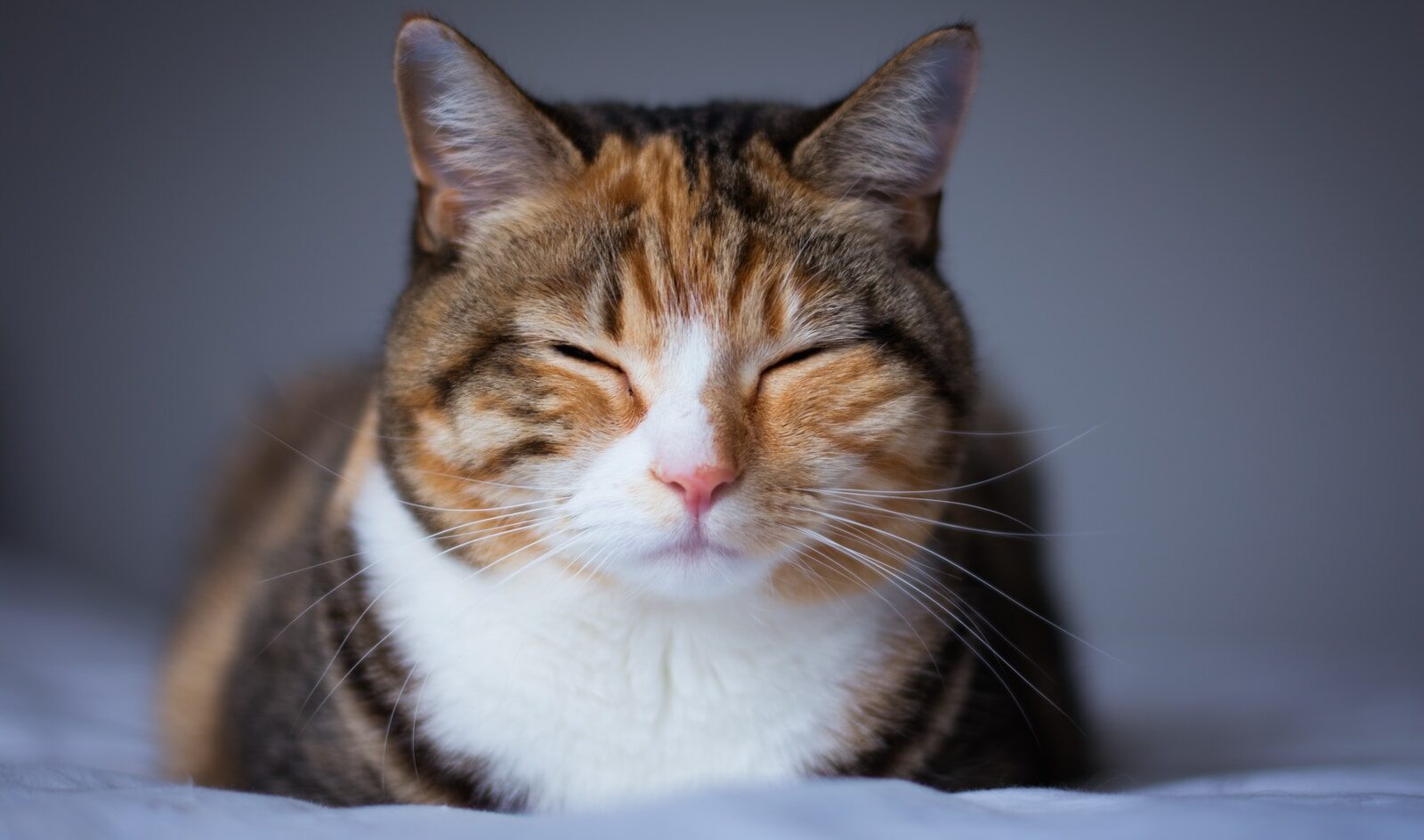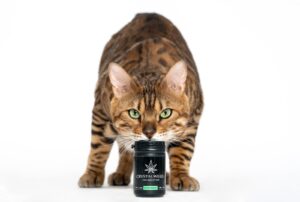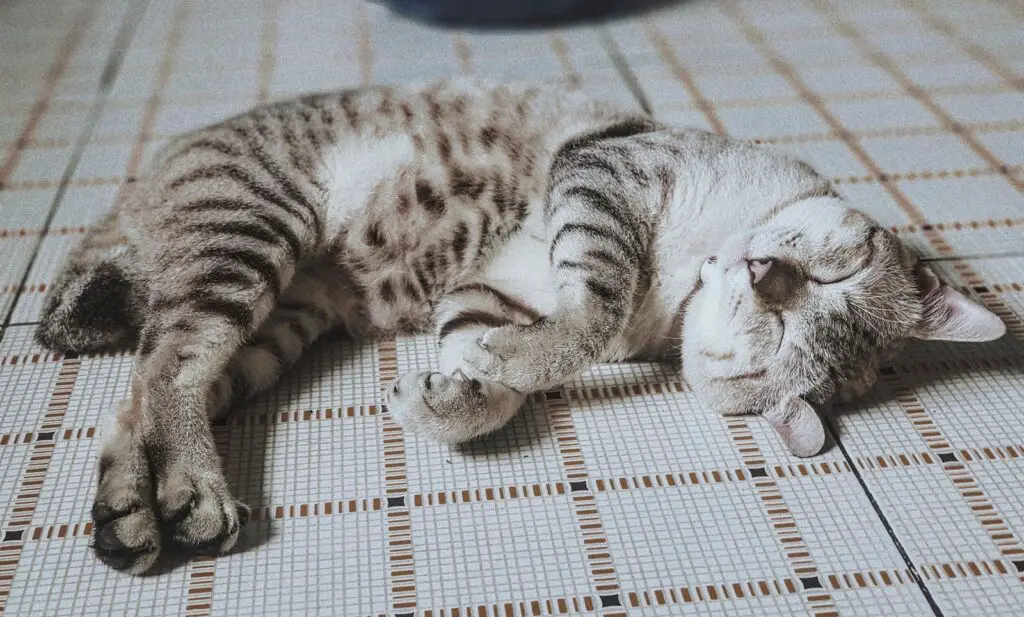
Key points
- The most common symptoms of lethargy in cats are lack of response to surroundings, abnormal sleepiness, and low energy;
- There are many possible causes of feline lethargy. These include overeating, parasitic infection, stress, depression, medication side effects, arthritis in older cats, etc.
- The treatment will always depend on the underlying cause of lethargy. For example, if lethargy is caused by a parasite, deworming your cat can solve the problem;
In this article, we will talk about what lethargy is, what symptoms of this condition cats can display, and most importantly, what you can do to help your cat.
Table of Contents
What is Lethargy?
Lethargy is a state of tiredness, inactivity, deep and persistent sleepiness that can be caused by both minor medical issues and severe health conditions. Lethargy is not a standalone illness but rather a symptom that a pet has other health problems. Diseases such as pyometra, hypoglycemia, and kidney failure are among the most common causes of lethargy. Cats may also become lethargic due to the loss of their owner or friend. A veterinarian will usually be able to pinpoint the reason for a cat’s passive state after a thorough examination.
Since cats typically sleep a lot throughout the day, it is sometimes hard to spot that something is wrong. That is why it is so essential for all owners of felines to be aware of the symptoms of lethargy.
Symptoms of Lethargy in Cats
Cats are masters at hiding pain. That’s why it’s not that easy to know at a glance what is happening to your furry friend. However, there are several symptoms that may hint to pet owners that their cat is lethargic:
- Sleepiness or drowsiness. A healthy adult cat sleeps for an average of 12 to 16 hours a day. If you’ve noticed that your pet has started to sleep more, you need to start thinking about what’s causing it;
- Loss of appetite. Your cat eats less and less and generally doesn’t show any interest in food;
- Aggression: Your pet growls, hisses, and can even scratch you whenever you touch it or call to play;
- Less grooming: The cat’s hair loses its shine and looks increasingly dirty. Since this might be very dangerous for a cat, sp you need to clean the pet daily until it starts feeling better;
- Delayed response: Cats are naturally very curious, but when they feel sluggish, they lose interest in their surroundings;
- Jaundice. The skin, mucous membranes, and white portions of the eyes become yellow;
- Less movement, general inactivity;
- Diarrhea;
- Fever;
- Vomiting;
- Thirst/increase in urination;
- Difficulty breathing;
Some cats will also display disease-specific symptoms.
What Causes Lethargy in Cats?
Lethargy is not a standalone disease but rather a symptom. Here are several of the most common causes of lethargy in cats:
- allergies
- low protein diet
- anemia
- feline leukemia
- respiratory infections
- diseases of the heart
- intoxication
- heatstroke
- parasites
- blood diseases
- intestinal infections
- urinary tract problems
- adverse reaction to a drug
- loss of a loved one
- stress
- obesity
- lack of exercise
- hairballs
- arthritis in older cats
The following conditions that can cause lethargy are especially dangerous for your cat:
- diabetes
- viral infections such as feline immunodeficiency virus (FIV)
- bacterial infection
- abscesses from bites by other cats
- musculoskeletal injury
- heartworm
The following conditions are not so common; however, they might be life-threatening for your cat:
- protozoal infections
- gastrointestinal disorders
- cancer
- organ failure
- poisoning
- neurological disorders
- cardiovascular disorders
- respiratory problems
When to Go to the Vet?
Although lethargy is not considered to be an emergency, a vet visit won’t hurt. If you notice that your pet has been lethargic for more than one day, it’s best to book an appointment so a veterinarian can rule out serious causes of the condition. You should also pay close attention to the pet before the visit so you can provide your vet with information on any changes in your cat’s behavior.
How is Lethargy in Cats Treated?
Treatment plans will vary in every individual case depending on the cause of lethargy. If you suspect your cat is not doing well, you will need to take it to a vet for a series of tests. This typically includes a complete blood test, urinalysis, fecal sample to check for parasites, chest x-ray, FIV and FELV tests, heartworm tests, and ultrasound.
Once your pet has been diagnosed, the specialist will be able to prescribe your cat some medication. For example, antibiotics will be used to treat a bacterial infection.
- If your cat has parasites, a deworming medication can solve the problem;
- Your pet will need surgery to remove tumors or repair an injury;
- If a cat suffers from anemia, you will treat the condition with iron supplements and changes to the diet;
- If your cat has experienced heatstroke, a vet will give it intravenous fluids;
- If the pet is suffering from depression, antidepressants and environmental changes might be needed;
Once your pet is no longer showing signs of lethargy, you will need to continue follow-up care specific to the medical condition that caused the condition in the first place. Also, you will need to continue feeding your cat the correct diet and administering supplements prescribed by your vet.
Remember that keeping your cat’s stress levels low, providing a comfortable environment, and giving your pet the possibility to rest is crucial.
Natural Ways to Treat Lethargy in Cats
Now, if you’re someone who looks for natural remedies to keep their pets’ energy up, we have good news for you.
According to a study conducted in 2020, worms that have been fed VitaminA treats for the entire duration of their life lived up to 18% longer and were generally more active than their peers that didn’t consume VitaminA. Considering that VitaminA has a similar effect on humans, cats, and dogs, we can assume that cats can also greatly benefit from taking VitaminA supplements.
Numerous forms of VitaminA are available for cats of all breeds and ages. If you purchase cat VitaminA oil or treats on our website, you will get a human-grade product that will help your pet live a long and happy life.
You can also consider providing your cat with more physical and mental stimulation. This is another effective natural way to fight lethargy in felines.
Bring your pet to a veterinary clinic if you don’t see any improvements after trying out natural remedies.
FAQ
Why is my cat suddenly so lethargic?
Lethargy might be the first sign of many health issues varying from kidney disease to heatstroke. However, without an examination by a veterinarian, it is almost impossible to pinpoint the cause of lethargy in a cat.
How do you know if your cat is lethargic?
Typical signs of lethargy in cats include general inactivity, delayed response, no interest in the surroundings, lack of energy, and sleepiness.
Is cat lethargy an emergency?
The short answer is no. Sometimes, your cat might be just lazy. However, if you notice suspicious changes in the pet’s typical behavior, it is best to consult a vet.






